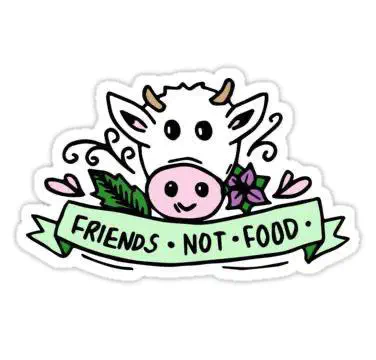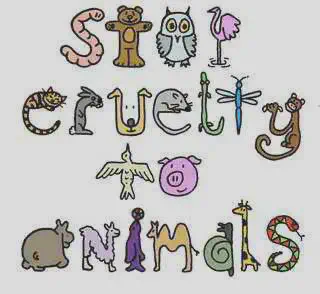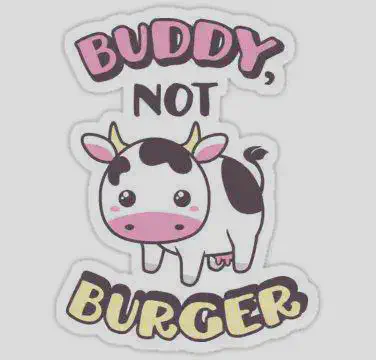How can we eat someone with a mind? Raise your consciousness, do mindful eating!
 Animals: Friends NOT Food!
Animals: Friends NOT Food!“Vegetarian food leaves a deep impression on our nature. If the whole world adopts vegetarianism, then it can change the destiny of mankind!”
This is a quote by Albert Einstein a brilliant scientist who was also a vegetarian. Surprising, isn’t it?!
Get ready to be surprised even further…great people like Isaac Newton, Benjamin Franklin, Leonardo Da Vinci, C. V. Raman, Mahatma Gandhi and countless others were all vegetarians!
1st October, 2019…just a regular day for the world to go about its daily hustle but to those of you who may be aware it was the ‘World Vegetarian Day’. A day when all vegetarians and vegans come together to celebrate vegetarianism and some other people take a pledge to ‘Go Vegetarian’ for life!

Anyway, we don’t have to wait for this specific day to come so that we can turn a new leaf and become vegetarians. If you aren’t already a vegetarian, then you can tread on the path of vegetarianism today, this hour, this minute, this second, just now!
The word ‘vegetarian’ is said to have originated from the words ‘vegetable’ and ‘agrarian’ (related to agriculture). Someone who follows a ‘vegetarian’ diet has been defined as a person who does not eat meat; someone whose diet consists wholly of vegetables, fruits, grains and dairy products like milk and curd as per the Merriam Webster dictionary.

However, vegetarianism implies much more than that. First of all, vegetarianism, the act of following a vegetarian diet, revolves around the principle of non violence (Ahimsa) and thus, holds the view that all living organisms in the world are equal. Building on this notion of vegetarianism, many religions worldwide have advocated vegetarianism as a part of their moral and societal codes of conduct. Hinduism, for example, advocates pure vegetarianism and states that a ‘Sattvik (Pure vegetarian)’ diet promotes purity of mind, peace, intelligence and the ability to make right decisions. The Mahayana Buddhists prohibited the consumption of any non veg food items and alcoholic beverages as they believed in the ideology of having compassion towards all fellow living beings which includes all animals, birds and the like. Jainism, a pacifist religion, again advocates vegetarianism in the strictest sense by upholding the all pervasive principle of ‘Live and Let Live’ which was given by Lord Mahavira. In fact, even in Islam it is stated “God will not be affectionate to that man who is not affectionate to God’s creatures’.
Secondly, a vegetarian menu is a powerful and pleasurable way of achieving good health and happiness as it involves a nourishing blend of delicious fruits and vegetables along with grains and some dairy products to give a major boost to our energy levels.
Thirdly, vegetarianism is highly beneficial to our health as it lowers the risk of acquiring many diseases and has zero adverse environmental effects (as per scientific evidence pertaining to the same)!

With numerous other benefits alike, being vegetarian is a fun filled experience that is sure to fill your lives with energy and joy! The tone for vegetarianism is thus set with a thought to ponder upon: “Animals: Friends or Food?”
Only if people who eat animals cared to find out how it reaches their plate, most will shudder at the horrendous torture they are responsible for! It is indeed a paradox that someone who will almost die at the thought of even eating their own dog, has no qualms about eating another animal quite similar in mind and body.
For those of us who believe that God put animals on this earth for humans to eat them, think again…why would God intentionally create food for you that can think be aware and experience pain and emotions?!
In most societies, food habits are cultural but then consciousness does not have to be collective. Consciousness starts not just in the mind but in every act that we do. Eating food has to be mindful!
